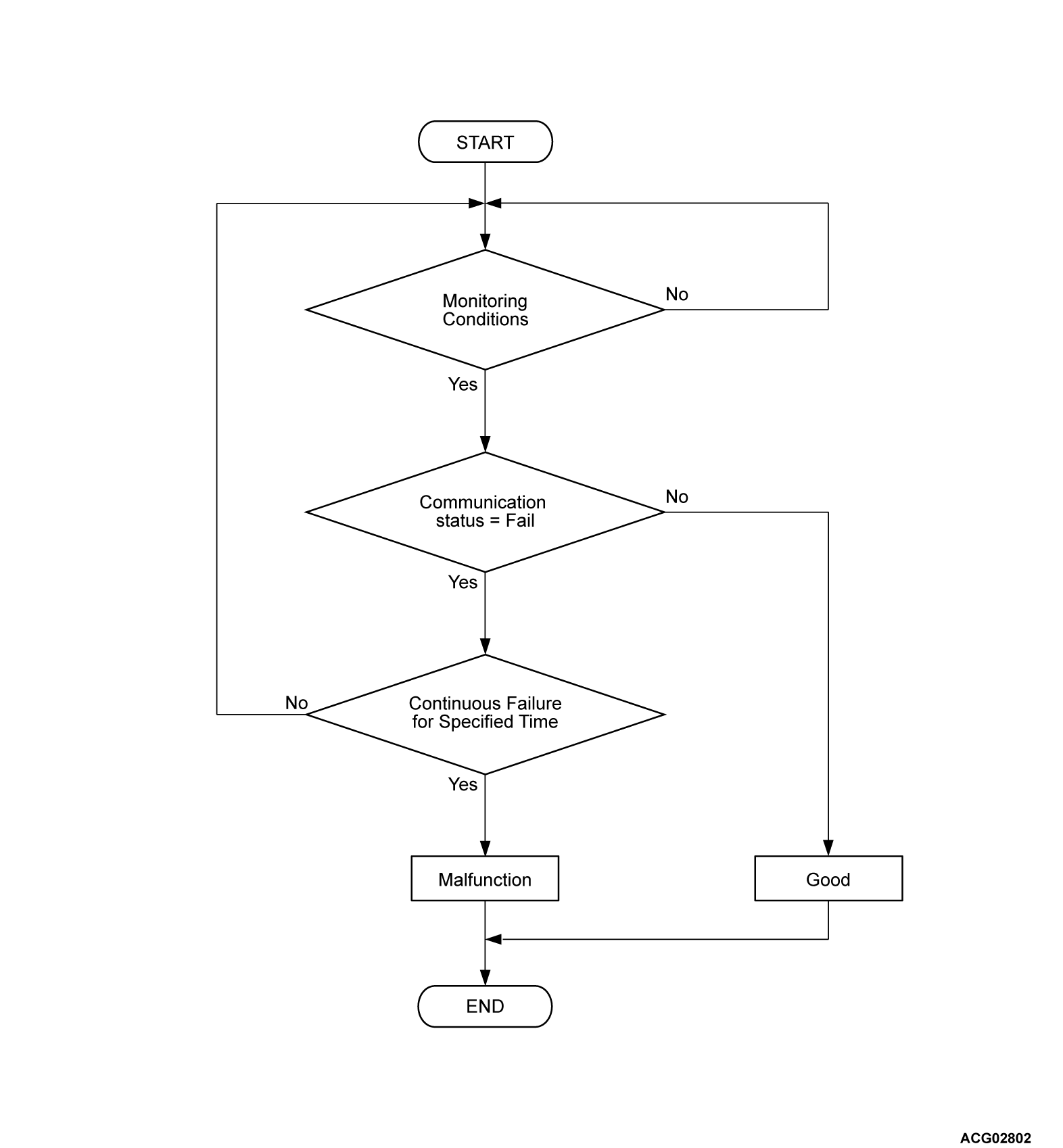DTC U11AD: PTC Heater Lost
| caution |
MONITOR EXECUTION
- Continuous
MONITOR EXECUTION CONDITIONS (Other monitor and Sensor)
Other Monitor (There is no temporary DTC set in memory for the item monitored below)
- Not applicable
Sensor (The sensor below is determined to be normal)
- Not applicable
DTC SET CONDITIONS
Check Conditions
- battery management unit (BMU) power supply voltage is 8 volts to 16 volts.
- Time after above conditions satisfy is more than 2 second.
- Main drive lithium-ion battery PTC heater main relay ON continues 0.2 second.
Judgment Criterion
- Unable to receive main drive lithium-ion battery PTC heater signals through the CAN bus line for 0.3 second.
OBD-II DRIVE CYCLE PATTERN
FAIL-SAFE AND BACKUP FUNCTION
- Not available
PROBABLE CAUSES
- The harness and connector is failed.
- CAN line harness damage or connector damage.
- The main drive lithium-ion battery PTC heater main relay is failed.
- The main drive lithium-ion battery PTC heater is failed.
- The battery management unit (BMU) is failed.
DIAGNOSIS
Required Special Tools
- MB991658: Test harness
STEP 1. Using scan tool (M.U.T.-IIISE), check whether the other DTC is set.
Check whether DTC P0A84 is set at the same time.
Is the DTC set?
STEP 2. Using scan tool (M.U.T.-IIISE), check whether the other DTC is set.
Check whether DTC P1AD3, P1AD4, P1AD5, P1AD6, P1AD7, P1AD9, P1ADA, P1ADB, P1ADC, P1ADD and U0112 are set at the same time.
Is the DTC set?
STEP 3. Measure the resistance at main drive lithium-ion battery connector.
(1) Disconnect the D-33 main drive lithium-ion battery connector, and measure at the wiring harness side.
(2) Check the resistance between the D-33 main drive lithium-ion battery connector (terminal No.3) and body ground.
OK: Continuity exists (2 Ω or less)
Is the check result normal?
STEP 4. Check of open circuit, short to ground or short to power supply in CNBL, CNBH line between main drive lithium-ion battery connector and BMU connector.
| caution | When measuring the resistance, disconnect the negative 12V starter battery terminal. |
Is the check result normal?
STEP 5. Resistance measurement at BMU connector.
(1) Remove the BMU, and measure at the equipment side.
(2) Resistance between D-203 BMU connector terminal Nos.37 and 38.
OK: 120 ± 20 Ω
Is the check result normal?
STEP 6. Using scan tool (M.U.T.-IIISE), check whether the DTC is set again.
Recheck the DTC.
(1) Erase the DTC.
(2) Turn off the power supply mode of the electric motor switch.
(3) Turn on the power supply mode of the electric motor switch.
(4) Set scan tool (M.U.T.-IIISE) to the actuator testing mode for item No.3: BAT. heating system power relay (Refer to  ).
).
 ).
).- Main drive lithium-ion battery PTC heater main relay is ON.
(5) Check the DTC is set.
Is the DTC set?
STEP 7. Check of open circuit and damage circuit in line between main drive lithium-ion battery PTC heater connector and joint connector.
(2) Disconnect the I-02 joint connector (CAN7), I-15 joint connector (19), I-18 joint connector (CAN8), I-25 joint connector (21) and main drive lithium-ion battery PTC heater connector, and measure at the wiring harness side.
(3) Check the line between the following terminals.
- Between the main drive lithium-ion battery PTC heater connector (IGCT terminal) and I-15 joint connector (19) (terminal No.9).
- Between the main drive lithium-ion battery PTC heater connector (GND terminal) and I-25 joint connector (21) (terminal No.13).
- Between the main drive lithium-ion battery PTC heater connector (CANH terminal) and I-18 joint connector (CAN8) (terminal No.12).
- Between the main drive lithium-ion battery PTC heater connector (CANL terminal) and I-18 joint connector (CAN8) (terminal No.1).
- Between the I-18 joint connector (CAN8) (terminal No.9) and I-02 joint connector (CAN7) (terminal No.10).
- Between the I-18 joint connector (CAN8) (terminal No.20) and I-02 joint connector (CAN7) (terminal No.21).
Is the check result normal?
![[Previous]](../../../buttons/fprev.png)
![[Next]](../../../buttons/fnext.png)


